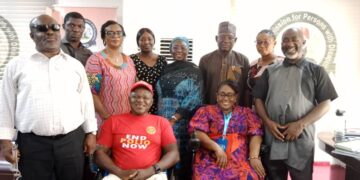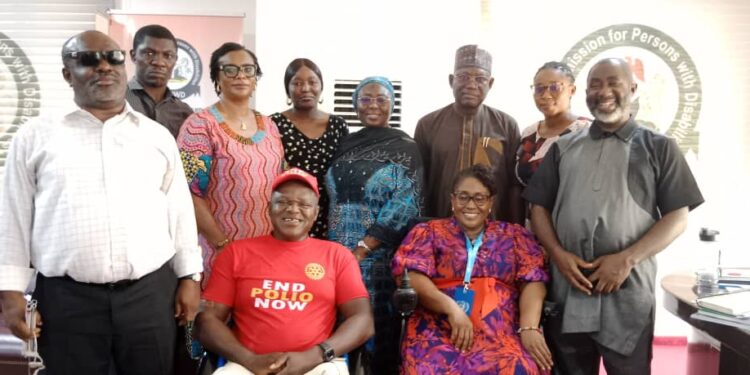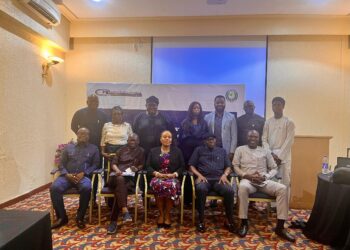By Ebi Kesiena
The National Commission for Persons with Disabilities (NCPWD) has taken a significant step towards advancing disability inclusion in Nigeria through a strategic partnership with the United Nations.
The Executive Secretary of NCPWD, Ayuba Gufwan, welcomed the United Nations Inclusion Coordinator in Nigeria, Madam Ekaite Judith Umoh, for a high-level engagement aimed at addressing key challenges affecting persons with disabilities (PWDs) across the country.
This was contained in a statement made available to the media on Thursday, signed by the Head of Media & Publicity, NCPWD, Ishaku Kigbu. In the statement, Gufwan outlined the commission’s most pressing issues, emphasising the urgent need for infrastructural development, comprehensive data collection, and adequate funding.
He highlighted that the commission currently operates from a rented facility, which limits necessary modifications for improved accessibility. Additionally, he stressed the critical need for accurate and extensive data to drive evidence-based policy decisions for Nigeria’s over 35 million persons with disabilities.
Gufwan further underscored the stark funding gap hampering the commission’s effectiveness, noting that while ₦60 billion is required to facilitate necessary infrastructural advancements, only ₦2 billion was approved—an amount grossly insufficient to meet the vast needs of the disability community. He advocated for the establishment of state liaison offices across all 36 states and local engagement centres in the 774 local government areas to decentralise services and ensure greater accessibility.
Recognising the importance of multi-sectoral collaboration, the Executive Secretary reaffirmed his commitment to securing robust partnerships from the government, private sector stakeholders, non-governmental organisations, and international development partners, particularly the United Nations.
In response, Madam Ekaite Judith Umoh expressed concern over the limited financial resources allocated to the commission and reaffirmed the UN’s commitment to disability inclusion, pledging to collaborate closely with the NCPWD to implement accessibility regulations and other strategic interventions.
The commission also presented its structured approach to systemic reforms, particularly in the education sector, unveiling a Standard Operating Procedure (SOP) on Inclusion and Access of Persons with Disabilities to Pre-Tertiary Education. This comprehensive manual is designed to guide classroom teachers in delivering inclusive education.
Additionally, several critical policy documents were formally handed over to the United Nations Inclusion Coordinator. The meeting concluded with a formal handover of these key documents, marking the beginning of a strengthened alliance between the NCPWD and the United Nations in promoting disability rights and inclusion in Nigeria.


































